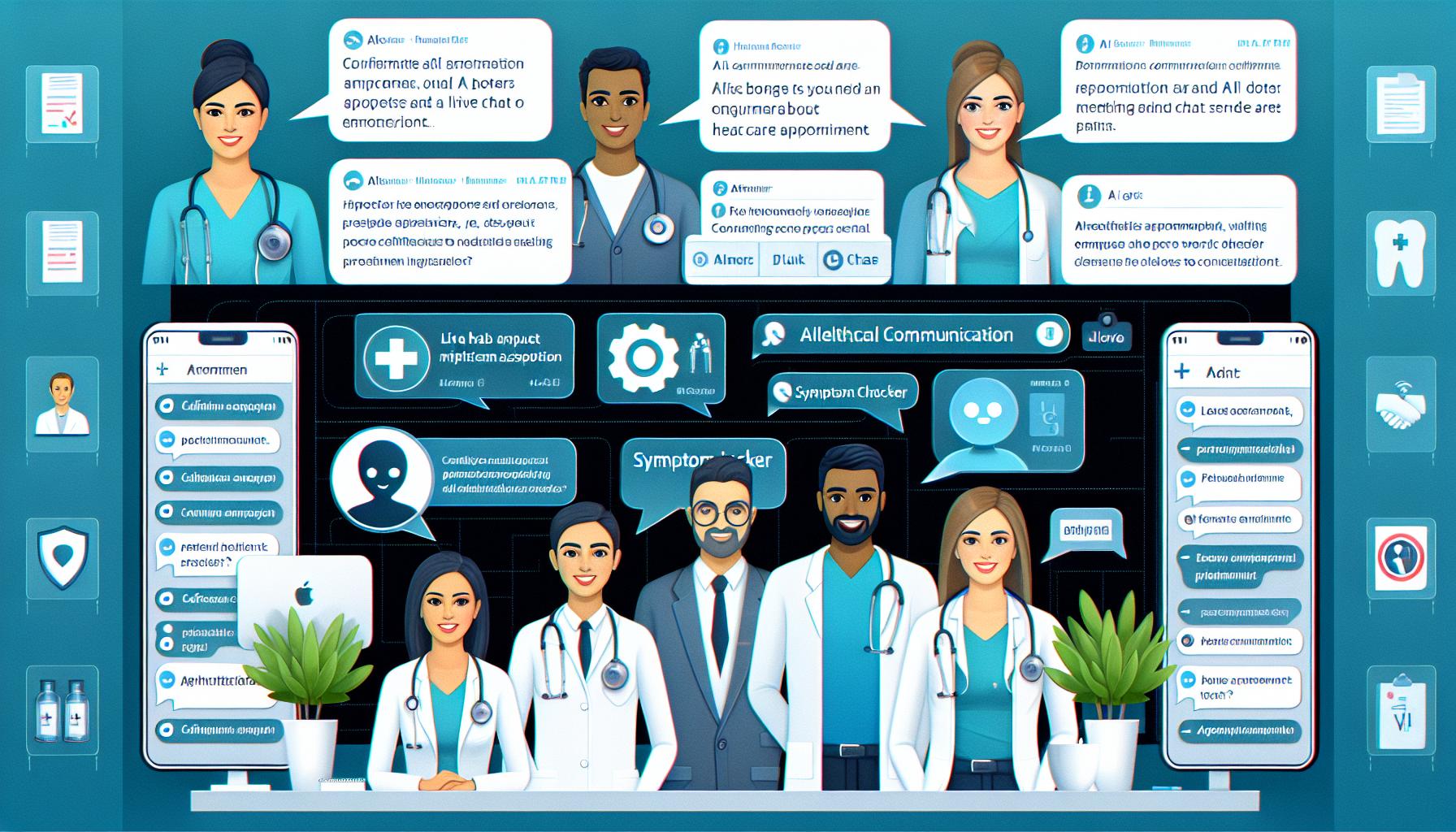Navigating Patient Queries: AI Agents in Healthcare Communication

Introduction: The Vital Role of Communication in Healthcare
In the healthcare sector, effective communication is not just a convenience; it is a necessity. Patients require timely and accurate information regarding their health concerns, appointments, prescriptions, and more. As the demand for healthcare services continues to grow, the pressure on healthcare professionals to manage patient queries efficiently has increased. This is where Artificial Intelligence (AI) agents come into play, transforming the way patient interactions are handled through innovative solutions such as live chat and phone call systems.
AI agents are increasingly being deployed to handle routine inquiries, allowing healthcare professionals to focus on more complex tasks. These agents provide fast, accurate responses, enhancing patient satisfaction and engagement. This article explores the role of AI in healthcare communication, focusing on tools like symptom checkers and appointment scheduling bots. We will delve into how these technologies are relieving the burden on healthcare providers and improving patient accessibility to necessary information.
AI Agents: Transforming Patient Interaction
AI agents have become an integral part of modern healthcare communication. These digital assistants are designed to understand and respond to patient queries, providing information and assistance in real-time. The implementation of AI agents in healthcare settings is driven by the need for efficiency and accuracy in handling patient interactions.
One of the most significant advantages of AI agents is their ability to provide 24/7 support. Unlike human staff, AI agents do not require breaks or time off, making them available to assist patients at any time of day or night. This continuous availability ensures that patients receive the information they need promptly, reducing anxiety and improving their overall experience.
Furthermore, AI agents can handle a large volume of inquiries simultaneously, something that would be challenging for human staff. This capability is particularly beneficial during peak times when the number of patient queries tends to spike. By managing these interactions efficiently, AI agents help prevent bottlenecks and ensure that all patients receive timely responses.
Symptom Checkers: Enhancing Patient Self-Assessment
Symptom checkers are one of the most common applications of AI in healthcare communication. These tools allow patients to input their symptoms and receive an assessment of potential conditions. While they are not a substitute for professional medical advice, symptom checkers can provide valuable insights that help patients decide whether to seek further medical attention.
The use of AI in symptom checkers enhances their accuracy and reliability. By analyzing vast amounts of medical data, AI algorithms can identify patterns and correlations that might be missed by a human. This capability allows symptom checkers to provide more precise assessments, guiding patients towards appropriate actions.
Moreover, symptom checkers empower patients by giving them more control over their health. By enabling individuals to conduct preliminary assessments, these tools encourage proactive health management and can reduce unnecessary visits to healthcare facilities, thereby alleviating the burden on healthcare professionals.
Appointment Scheduling Bots: Streamlining Healthcare Access
Another significant application of AI in healthcare communication is appointment scheduling bots. These AI-driven tools simplify the process of booking medical appointments, making it more convenient for patients and reducing administrative workload for healthcare providers.
Appointment scheduling bots are designed to integrate seamlessly with existing healthcare systems, allowing them to access and update appointment calendars in real-time. Patients can interact with these bots via chat or phone, selecting preferred dates and times based on availability. The bots can also send reminders and notifications, helping patients keep track of their appointments.
By automating the scheduling process, AI bots reduce the risk of errors and double bookings, ensuring that healthcare providers can manage their time effectively. This efficiency not only enhances patient satisfaction but also optimizes the utilization of healthcare resources.
Conclusion: The Impact of AI on Healthcare Accessibility
The adoption of AI agents in healthcare communication represents a significant step forward in enhancing patient accessibility and engagement. By providing fast, accurate responses to patient queries, AI agents alleviate the burden on healthcare professionals and ensure that patients receive the information they need promptly.
Tools like symptom checkers and appointment scheduling bots exemplify the potential of AI to transform healthcare communication. These technologies empower patients to take control of their health and streamline access to medical services, ultimately improving the overall healthcare experience.
However, the integration of AI in healthcare is not without challenges. Concerns about data privacy, the need for continuous updates, and the importance of maintaining a human touch in patient interactions are critical considerations. As AI technology continues to evolve, it is essential for healthcare providers to address these challenges and ensure that AI agents are used ethically and effectively.
In conclusion, AI agents hold immense potential to revolutionize healthcare communication. As the industry continues to embrace these technologies, patients can look forward to more accessible, efficient, and personalized healthcare experiences. For healthcare providers, the strategic implementation of AI agents offers an opportunity to enhance service delivery and improve patient outcomes. As we move forward, ongoing research and development will be crucial in unlocking the full potential of AI in healthcare communication.




